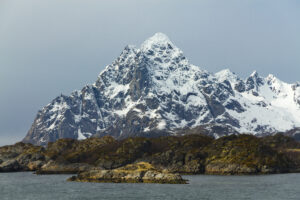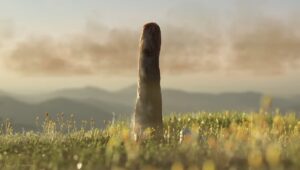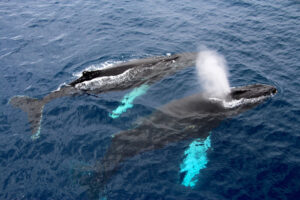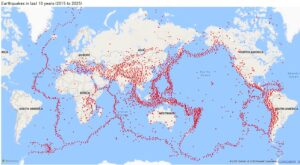In 1936, fleeing Stalin’s Terror and religious persecution, in particular, Karp Lykov, his wife Akulina, and their two children, Savin (aged nine) and Natalia (aged two) walked more than 250km into the remote Siberian wilderness. For the next 50 years, they lived a remote, self-sufficient life. Two more children were born into their family. These two had never seen a human outside of their own group until the family was discovered by accident in 1978.
The Lykovs were Old Believers, an Eastern Orthodox faith that practiced pre-16th century rituals. This sect was persecuted even more than ordinary Christians during the 1930s Soviet Union. Karp’s own brother was shot by a Communist patrol while Karp worked beside him.
In response, he and his family fled to the taiga, or boreal forest, near a tributary of the Abakan River, about 160km from the Mongolian border. They carried only a few essential items on their arduous journey: a couple of kettles, seeds, a crude spinning wheel, and the components of a loom.
They wore their clothes and shoes until they fell to pieces. Many of the original items proved impossible to duplicate in the wild. They replaced worn-out shoes with bark-soled versions and used hemp that they grew from seeds to replace threadbare clothing. Metal, however, was irreplaceable. Once the kettles wore away, food became a daily struggle.
The family lived continuously on the verge of starvation, They mainly survived off potato patties mixed with hemp seeds and ground rye. Life was so precarious that they held an annual family meeting to discuss whether they should plant the seeds for the following year or eat them for sustenance now. In 1961, choosing to feed her children instead of herself, Kulina died of starvation.
Each family member had his or her own strengths and resourcefulness. They’d each rule over part of their living environment. When Dimitri –- the youngest son, born in the wild –- was old enough, he’d hunt for meat. Sometimes he was gone for days at a time, sleeping without shelter in freezing temperatures. Without modern traps or weapons, he relied on hidden, self-dug ground traps or followed his prey until they eventually relented from exhaustion.

The Lykov family’s terraced garden and modest dwelling, which a party of geologists accidentally spotted from an aircraft in 1978.
Then one day in 1978, a group of geologists was flying over of the area, which had never been explored, when they noticed a clearing. Since there was no known record of human habitation near the area, they circled a few times. The evidence was compelling; a garden large enough to notice from the air could only have been made by humans.
They found somewhere to land and set out on foot to investigate. What they found defied belief.
They stumbled upon a dwelling which they later described as “not much more than a burrow, soot-blackened and cold as a cellar”. It was cramped, filthy, consisted of a single room, and the floor was covered with potato peels and pine nut cones. Cowering frightened in the corner were two girls.

Karp Lykov and his daughter Agafia wear clothing that the geologists gave to them.
Sensitively, the geologists retreated from the home to give the girls time to adjust to the unfamiliar visitors. To improve the chances of a positive first contact, they waited for the family to come to them. There they learned the Lykovs’ astonishing story.
The daughters spoke their own unique language, talking to one another in a “slow, blurred cooing.” They’d heard the concept of cities and countries through the stories their parents had shared with them, but their only reading material had been religious books and the Bible. When one of the geologists offered bread, one of the daughters replied, “We are not allowed that.” In fact, she’d never heard of such a food. The family’s chief entertainment was for everyone to recount their dreams.
Although they were now known to the world, and the world was known to them, they refused to accept new items into their lifestyle. Shortly after their discovery, Savin and Natalia died of causes most likely related to their harsh diet. That same year, Dimitri died from pneumonia after refusing to be airlifted to a hospital. Karp, the old man, succumbed to heart failure in 1988. The sole survivor, Agafia, one of the daughters, continues to live alone in the wilderness, 2,000m up a mountainside.






